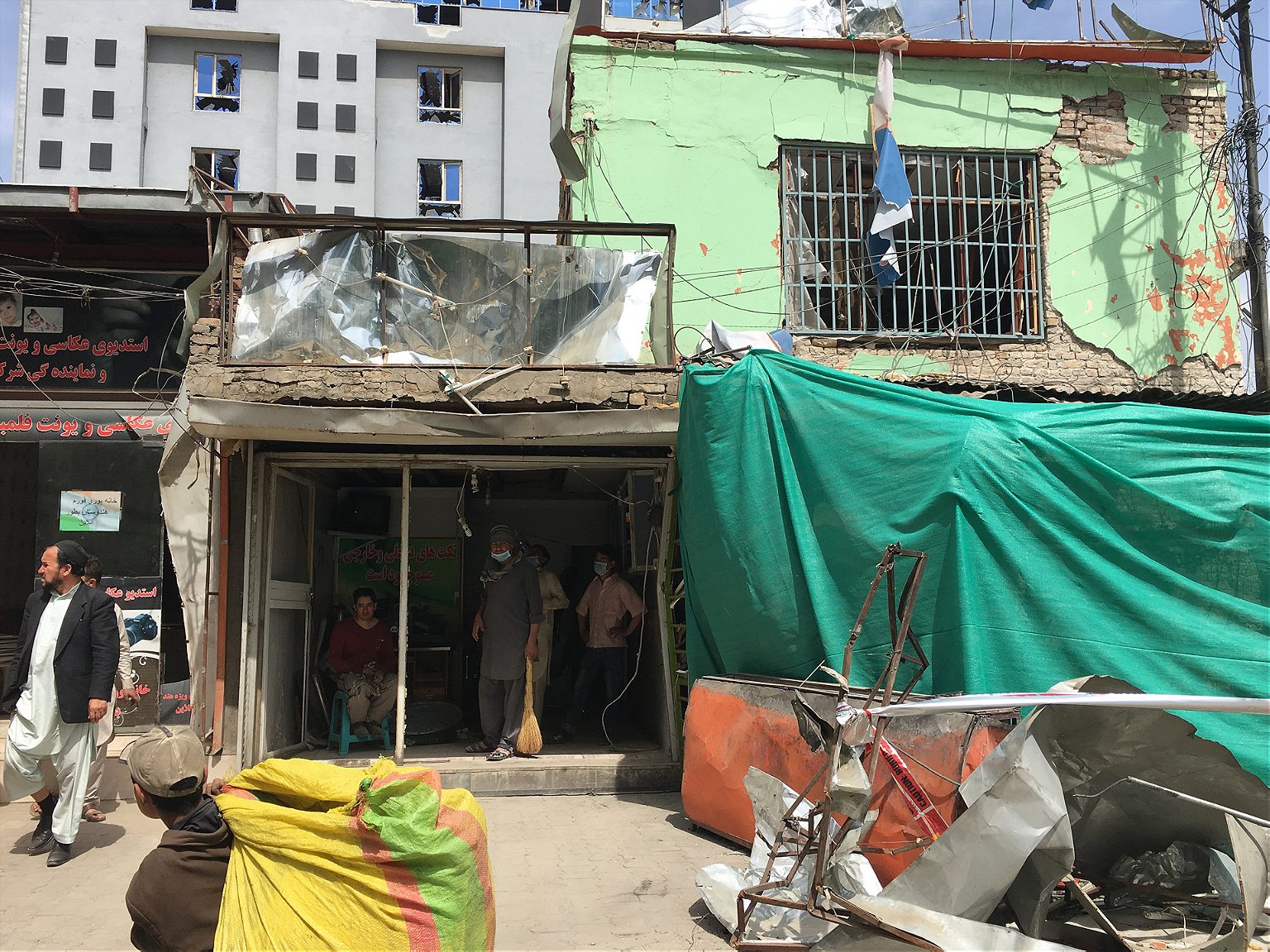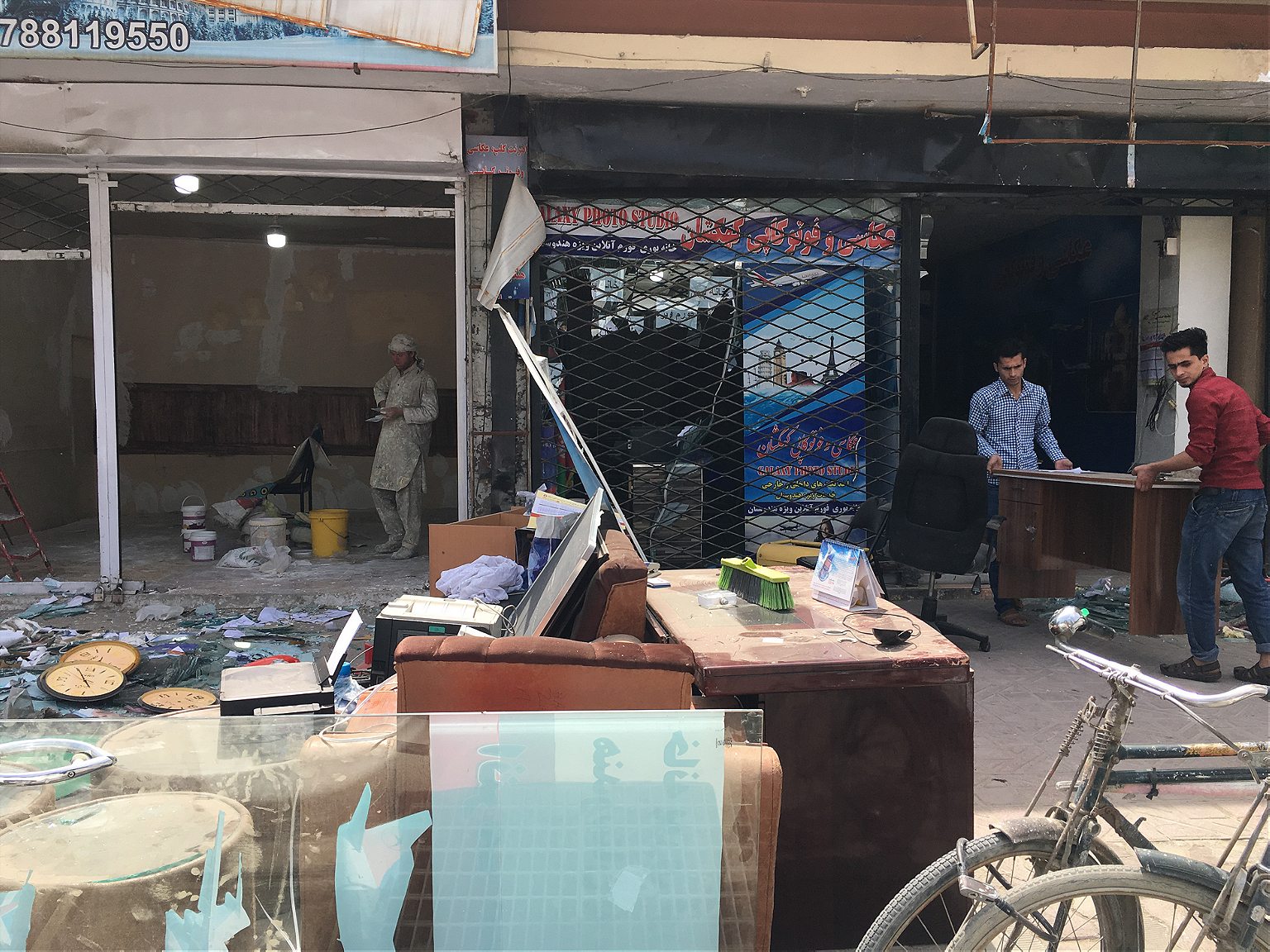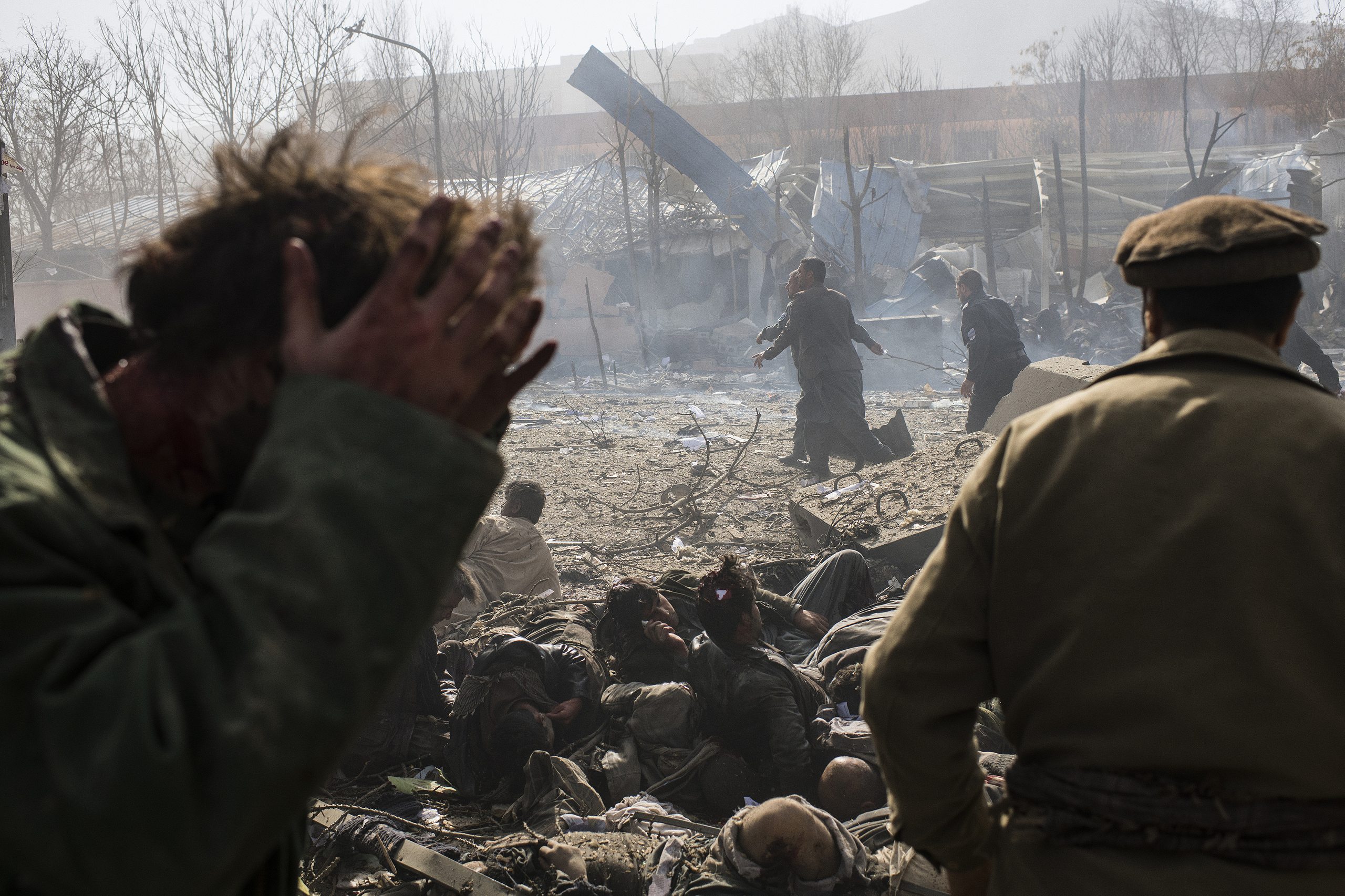Ten days after a deadly attack in Kabul killed 25 people, including nine journalists, a barrage of explosions and gunfire held the Afghan capital hostage for nearly eight hours on Wednesday. But unlike the previous incidents, writes Ali M. Latifi, Wednesday’s attacks went mostly unnoticed outside of Afghanistan.
On Wednesday morning, thousands of Afghans in Kabul, the country’s capital, woke up to an earthquake. As the ground shook beneath our feet, we tried to steady ourselves and wait out the tremor. Within half an hour, traffic had begun to fill the streets, and we carried on with our days. Like so many things in the country, Afghans don’t get to choose how to plan their day. As Hazrat Ali, the revered cousin of the Prophet Muhammad said: “Endure what comes your way.” Most Afghans do.
Around noon, as a Björk song was playing from my computer, I was startled by the sound of the first boom. It was louder than anything I had heard since I returned to the city of my birth seven years ago. The loudness of the sound, which seemed to come from everywhere and nowhere all at once, shook me.
I rushed to the windows to see if I could spot the smoke plumes that usually fill the sky after an attack—there was nothing. Flocks of nervous birds flew furiously off into the distance.
Below my apartment, on the butcher street, weary shopkeepers spilled into the street to see what had happened. On a rooftop above one of the stores, a little boy scanned the surroundings, while his white-feathered chicken ran from one side of the mud-lined roof to the other.
Then came the second blast, just as loud and sudden as the first one. By then, it was clear the city was once again under attack. But with no white and ashen plumes to offer a sign of where the attack was underway, an ominous tension grasped my family, friends and I, as we turned to our routine of texting and calling one another to see who was still alive.
While the shopkeepers on the butcher street rushed to bring their wares inside—the skinned carcasses of cows, chickens flapping in their overfilled cages, and cases of bottled water—messages from friends started flooding in. My cousin was on lockdown in a safe room of the NGO she worked in. One of my friends was stuck in her apartment across a massive shopping mall. Another friend who worked at an office a few meters from the site of the attack had urged her colleagues to rush into the designated safe room.
When my aunt called, the fear in her voice betrayed the sense of calm she was trying to convey over the phone.
“It was terrible, my arms and legs are still shaking,” she said. “Thank God, Adela [the housekeeper] was around; otherwise I would have fainted right there.”
As I stood by the window once again looking for any indication of what had happened, the sounds of explosions and gunfire continued in the distance.
Two blasts turned into three, then four, then five, six, seven, eight. Even the calls to prayer were interrupted by the persistent sounds of gunfire and booms. Finally, hours later, I lost count of the blasts—it must have been the ninth … or maybe it was the tenth.
By then, my Facebook and Twitter feeds were full of reports of the ongoing attack. Even my friends’ Instagram stories went from pictures of kebab lunches, gym selfies, and slow-motion videos of Afghan flags waving across a bridge in West Kabul to screenshots of Twitter updates about the attack.


Just ten days ago, as news about the double suicide bombing in one of the safest areas of Kabul spread, journalists from around the world called in. They wanted to know about the attacks that killed journalists in Kabul and the eastern province of Khost. The calls continued for the next several days as foreign reporters asked what it’s like to live in Kabul, and what it means to work as a journalist in the middle of an ongoing war. Now, less than 30 minutes after Wednesday’s attack, there I was again, staring at my phone, thinking it would start ringing any minute now. After all, the commercial center of our city was under siege—surely the world would want to know what it was like to be in lockdown in one of the busiest areas of Kabul.
Hours passed, but there were no phone calls or email queries from media outlets in the West. One TV station in Turkey asked for video interviews and pictures. The rest of the world, it seemed, was too occupied with the debate over U.S. President Donald Trump’s decision to pull out of the Iran deal. Few Westerners, including journalists who relentlessly tweeted about deadly attacks on journalists in Kabul and Khost on April 30, would broadcast to the outside world our fears living in the theater of America’s longest foreign war.
Ten days ago, we were flooded with media requests—usually, this level of interest only comes when there is an attack on an embassy or foreign nationals—from publications around the world. This time, though, we were left to ourselves, with only social media as an outlet to tell our story—and air our fears. But it felt more like a primal scream into a void. On this day, it seemed like the world had once again forgotten about Kabul.
Two hours after the initial blasts, young men and women, their white and black scarves billowing in the wind, were still running down the road that leads to the main street. Even their running seemed fatigued as if they had already lost all their energy from running last week (or the week before)—and making it to the roundabout would prove too much this time.
Then, more than three hours into the non-stop attack, the ground began to shake again. The concrete and glass high-rise I lived in began to tremble. Only this time, the shaking did not stop.
Once it became clear that this was no ordinary tremor—this time, it was a bigger earthquake—we all rushed out into the hallway. The doors leading to the other floors had been locked, so we had no choice but to wait out the simultaneous dangers in the shaking corridors.
“I thought I was shaking because of the fear, but then I realized it wasn’t in my head,” one of my neighbors said, looking down at the floors below us. After about a minute, the tremors finally stopped.
As the hours wore on and the day turned to night, we continued to try and count the explosions, but it seemed futile.
Here we were, surrounded by fear and terror once again, but no one outside was asking what happened this time. Some of us feared information wasn’t getting out of Afghanistan because local journalists were worried about returning to an attack site days after their colleagues were killed by a suicide bomber while they rushed to cover an earlier blast. I could see a few journalists, their cameras in hand, negotiating with the nervous police—one of the April 30 suicide bombers had posed as a journalist holding a camera—to get as close to the attack site as soon as possible. As the hours wore on and the day turned to night, we continued to try and count the explosions, but it seemed futile.
It wasn’t until about 8 p.m. when we were finally allowed outside of our building. We had spent eight hours waiting for an end to the attack, but even then, when ambulances lined up on the street, the attack was not over. Sounds of gunfire and blasts echoed into the night.
The target of Wednesday’s attack was a travel agency specializing in Indian visas, where more than 350 people had been trapped during the attack. Dozens of others were under lockdown in banks and offices nearby, including a number of government buildings. All employees of the travel agency were safely escorted out of the building. According to the Ministry of Public Health, seven people were killed and another 17 wounded in Wednesday’s attacks.
By the next morning, when municipality workers and store owners were trying to clean up the shattered pieces of glass on the streets, the story was over—it was a new day and there would be very little coverage of what we had all endured the day before.
But Wednesday’s attack was all anyone in the city are still talking about. At the Shahr-e Naw park, not far from my apartment, amid the thwack of cricket bats hitting the tennis balls, people talked about the day before’s bombings.
“Then the attackers entered the police district,” a cucumber seller told the two customers gripped to their snack, and the drama from the day before.
Following the series of attacks Wednesday, Afghans who had never discussed abandoning their homes have been asking themselves what if they could move to Tajikistan, Uzbekistan, or even Turkey. For many Kabul residents, the city has become too dangerous to live in. Business people, NGO workers, and even my own family members now wish they could move elsewhere and live in peace.
“I want to go to Turkey to study and never come back,” Khalid, the building manager in my apartment said. Less than 24 hours ago, he was doing his best to calm the nervous tenants as the ground beneath shook and gunshots echoed in the distance.
An NGO worker said he would move his family about 250 miles away from Kabul, back to their homeland in the remote northeastern province of Badakhshan.
Hazrat Ali’s words about enduring what comes your way may have worked even a few years ago, but enduring danger and fear is no way to live. Now Afghans are more likely to remember Ghani Khan, the Pashtun poet and philosopher, who said: “I’m mad, I’m mad indeed, I seek life in death’s gaze.”
